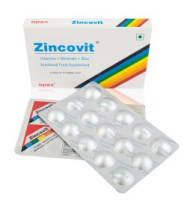USED FOR:
Allergic disorders
Short term fluid replacement after trauma
Infections
COMPOSITION:
Chlorpheniramine (0.03% w/v)
Sodium Chloride (0.05% w/v)
Boric Acid (1.25% w/v)
Tetrahydrozoline (0.01% w/v)
Therapeutic Uses:
respiratory
ophthal

No interaction found

WEIGH RISKS VS BENEFITS
Optihist Plus Eye Drop may be unsafe to use during pregnancy.Animal studies have shown adverse effects on the foetus, however, there are limited human studies. The benefits from use in pregnant women may be acceptable despite the risk. Please consult your doctor.

No information is available on the use of Optihist Plus Eye Drop during lactation. Please consult your doctor.

Optihist Plus Eye Drop may cause blurring of your vision for a short time just after its use. Do not drive until your vision is clear.

Optihist Plus Eye Drop is probably safe to use in patients with kidney disease. Limited data available suggests that dose adjustment of Optihist Plus Eye Drop may not be needed in these patients. Please consult your doctor.Use of Optihist Plus Eye Drop may cause excessive sleepiness in patients with end stage kidney disease.

Optihist Plus Eye Drop is probably safe to use in patients with liver disease. Limited data available suggests that dose adjustment of Optihist Plus Eye Drop may not be needed in these patients. Please consult your doctor.
Uses of Chlorpheniramine
Chlorpheniramine is used in the treatment of allergic disorders.
How to use Chlorpheniramine
This medicine is for external use only.Take it in the dose and duration as advised by your doctor. Check the label for directions before use. Hold the dropper close to the eye/ear without touching it. Gently squeeze the dropper and place the medicine inside the lower eyelid or ear. Wipe off extra liquid.
How Optihist Plus Eye Drop works
Chlorpheniramine is an antihistaminic medication. It blocks the action of certain chemical messengers that are responsible for inflammation, congestion, itching, and other allergic reactions.
Common Sleepiness.
Expert advice for Chlorpheniramine
Avoid driving or operating dangerous machinery as it may decrease alertness. Avoid consuming alcohol when taking the Chlorpheniramine, as it may cause excessive sleepiness or drowsiness.
Q. Does chlorpheniramine or chlorpheniramine maleate cause increase in blood pressure/ drowsy/non drowsy/sedating/get you high/keep you awake/sleepiness/make you tired/weight gain?
Chlorpheniramine causing these side effects is common or rare. Always consult your doctor, if you experience any of these side effects
Q. Is chlorpheniramine like Benadryl?
No, chlorpheniramine is different from Benadryl
Q. Is chlorpheniramine prescription?
Yes, it is available with doctor’s prescription only
Q. Can I take chlorpheniramine or chlorpheniramine maleate with Panadol/ cetirizine /Zyrtec/ Allegra/ warfarin/ diphenhydramine/ ibuprofen/Claritin/guaifenesin/Benadryl?
Yes, but taking other medicines may alter the effects of chlorpheniramine. Always consult your doctor for the change of dose regimen or an alternative drug of choice that may strictly be required
Q. Does chlorpheniramine contain aspirin?
No, it does not contain aspirin in it. Chlorpheniramine is a different drug than aspirin.
Uses of Sodium Chloride
Sodium Chloride is used in short term fluid replacement after trauma, dehydration and irrigation solution for eye/nose.
How to use Sodium Chloride
This medicine is for external use only.Take it in the dose and duration as advised by your doctor. Check the label for directions before use. Hold the dropper close to the eye/ear without touching it. Gently squeeze the dropper and place the medicine inside the lower eyelid or ear. Wipe off extra liquid.
How Optihist Plus Eye Drop works
Sodium Chloride works by replacing fluid loss.
Common Volume overload.
Expert advice for Sodium Chloride
Your electrolyte levels in blood and other parameters (such as blood pressure etc.) will be monitored regularly as you receive intravenous sodium chloride.
Tell your doctor if you have disorders of the kidneys, lungs, problems of the heart related to impaired pumping of blood (congestive cardiac disorders), high blood pressure or pregnancy-related blood pressure problems (pre-eclampsia), fluid retention problems or swelling in hands, ankles or feet.
Seek immediate medical attention if you experience any unwanted swelling, trouble in breathing, muscle cramps, and/or weakness, fits, nausea, vomiting or stomach pain.
Tell your doctor if you are or planning to become pregnant or are breastfeeding.
Do not take if you are allergic to sodium chloride or any of its ingredients.
Do not give to patients with excess fluid or sodium in the space outside body cells (extracellular hyper hydration or hypervolemia).
Do not give to patients with abnormally low levels of sodium or chloride in blood (hyponatremia, hypochloremia), fluid and sodium retention problems or edema (swelling).
Do not give to patients with congestive heart failure (heart failure resulting in fluid build-up in lungs and other body tissues), severe liver and kidney functioning problems.
Q. Is sodium chloride soluble in water?
Sodium chloride is soluble in water
Q. Is Sodium Chloride acidic or basic?
Sodium Chloride is a neutral salt (neither acidic nor basic)
Q. Is Sodium Chloride ionic or covalent?
Sodium Chloride is an example of ionic bonding, where the molecule is formed by ionization of participating atoms and attraction between them
Q. Does Sodium Chloride expire?
Normally, Sodium Chloride does not have an expiry date if stored under appropriate conditions
Q. Is Sodium Chloride polar?
Sodium Chloride is ionic, which is considered highly polar
Q. Is Sodium Chloride an antioxidant?
Sodium Chloride does not possess antioxidant property.
Uses of Boric Acid
Boric Acid is used to prevent infections.
How to use Boric Acid
This medicine is for external use only.Take it in the dose and duration as advised by your doctor. Check the label for directions before use. Hold the dropper close to the eye/ear without touching it. Gently squeeze the dropper and place the medicine inside the lower eyelid or ear. Wipe off extra liquid.
How Optihist Plus Eye Drop works
Boric acid belongs to class of drugs called antiseptics. It can weakly inhibit bacterial and fungal growth. It irrigates the eyes, cleanses, refreshes and soothes the irritated eyes; and help in removal of loose foreign material, air pollutants or chlorinated water..
Common Increased liver enzymes, Abdominal pain, Allergic reaction, Burning sensation, Irritation, Cns stimulation, Central nervous system depression, Diarrhoea, Rash, Vomiting.
Expert advice for Boric Acid
Avoid using boric acid for jock itch/groin itch for more than 2 week and athlete's foot or ringworm for more than 4 week.Do not use boric acid along with other eye medication containing polyvinyl alcohol.Avoid using this medication if you have any open wound or other skin injury around your eyes.Boric acid is a weak antibiotic and should not be used to treat any type of infection without the advice of a doctor. There are many other, more effective antibiotics available.Tell your doctor if you are or planning to become pregnant or are breastfeeding.
Uses of Tetrahydrozoline
Tetrahydrozoline is used in the treatment of allergic disorders.
How to use Tetrahydrozoline
This medicine is for external use only.Take it in the dose and duration as advised by your doctor. Check the label for directions before use. Hold the dropper close to the eye/ear without touching it. Gently squeeze the dropper and place the medicine inside the lower eyelid or ear. Wipe off extra liquid.
How Optihist Plus Eye Drop works
It works by temporarily narrowing the blood vessels in the eye.
Common Systemic hypertension (high blood pressure), Insomnia (difficulty in sleeping).


 Optihist Plus Eye Drop
Optihist Plus Eye Drop  Bookmark
Bookmark





















